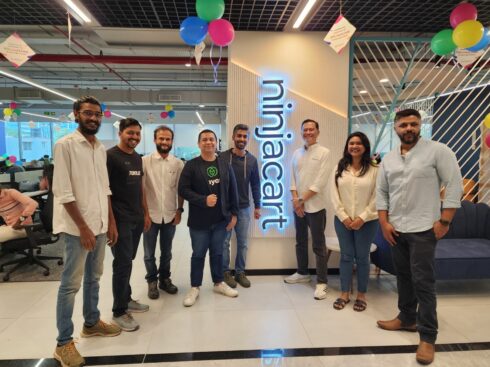
SUMMARY
While B2B startups in India have been on the rise, the overall investment in B2B $3.7 Bn is still one-third that of B2C
Indian B2B startups prefer to keep their holding company outside India
The overseas investment limit of AIFs comes with a cap of 25% of the investible corpus for an individual AIF
While the initial years of India’s start-up ecosystem were largely dominated by consumer-facing companies – both in terms of buzz and business – Business to Business (B2B) ventures are finally finding their feet. A joint study by NetApp and Zinnov that the number of B2B startups in India more than tripled (from 900 to 3,200) between 2014 and 2018. During the same time, funding grew at a massive 364% in five years.
In 2018, the overall investment in India’s B2B start-ups stood at $3.7 Bn. While this represents an enormous growth in B2B activity, it still represents just one-third of the investments in the Business to Consumer (B2C) segment. Here’s what’s driving the growth in the B2B segment:
- Professionals with the requisite domain expertise in IT services companies— from within India and abroad — are coming out of enterprises and starting their second innings as founders of start-ups.
- Increased corporate involvement, with several large companies starting their own Corporate Venture Arms focused on India.
- A growing number of B2B-focused VC funds, most of them committed to ‘deep tech’ start-ups.
- The rise of advanced Megatech trends, especially AI/ML, AR/VR, Cloud infrastructure, Edge Computing, Cybersecurity, etc. More than 75% of India’s B2B startups are anchored on these tech platforms.
Indian entrepreneurs prefer to keep the holding company (Head Quarters) outside of India while maintaining a strong Indian connection through a 100% Indian subsidiary. Here’s why:
- While India is a growing market for B2B startup products, primary markets reside in the USA, Europe, Japan, Singapore and this trend is likely to continue for many years. It becomes imperative for these B2B start-ups to have a strong presence in these primary markets to stay competitive. Establishing the headquarters close to the customer deployment makes easy to hire, retain and incentivize (ESOPs) highly accomplished key Executives in those respective geographies.
- These target markets also provide better Intellectual Property (IP) protection, Venture Capital funding in subsequent rounds, favourable tax laws, acquisition opportunities due to the presence of cash-rich Fortune 500 companies.
- Domestic venture capital funds (AIFs), though extremely successful, focus on funding B2B start-ups at an early stage. There is still a long way to go when it comes to growth-stage funding. Which is why startups need to access foreign capital for the growth phase (Series-B and onwards).
- Indian B2B start-ups will continue to build Enterprise Software Products which are globally scalable. However, Indian customers (enterprises) still continue to be price-sensitive and not ready to pay for these products commensurately. Customers outside India are at a more mature stage and have a much higher propensity to pay for these products.
The “hybrid structure” for B2B start-ups may continue as a bridge gap until we reach a well-entrenched ecosystem on par with USA, Singapore, etc. To be fair, India definitely stands to benefit from this hybrid structure. The Indian subsidiaries generate well paid high-tech jobs, foreign equity capital and eventually help India to move up in the Technology value chain thereby contributing to the overall development of the Indian economy.
Due to all the reasons discussed above, there’s been an increasing trend of overseas investments by AIFs. Which is why in 2018, SEBI, in consultation with RBI, has enhanced the overall overseas investment limit of AIFs( Alternative Investment Funds) to USD 750 million from previous USD 500 million. However, this increase comes with a cap of 25% of the investible corpus for an individual AIF.
While the increase in the investment limit is great, the cap of 25% needs to be increased to at least 50% of the investible corpus. Here’s why:
- AIFs/ VC Funds follow the model of 60:40 between the first round of investing & follow-on investing. Follow-on investment takes place when the startup achieves agreed-upon milestones. At present, AIFs/ VC Funds exhaust their individual limit of 25% by the time they complete the first round of investment. There is no space for follow-on investing. This jeopardizes the interest of the domestic LPs (Limited Partners) who don’t get the entire benefit of the investment, even while undertaking the risk.
- The founders of these portfolio companies are also very reluctant to take rupee investment in the Indian subsidiary company since the lead investors (mostly overseas institutions/funds) do not recognise or appreciate this kind of investment.
- At the time of exit, the domestic AIFs also face a major challenge when it comes to finding a buyer who can provide an exit to the investors in the Indian subsidiary. The domestic AIF and domestic LPs, in turn, do not get adequate benefits of their investments in the Indian Subsidiary as the securities always trade at a discount to the fair market value of securities in the holding company.
Here’s why an increase in the cap would be a win-win for all stakeholders — AIFs, its LPs as well as the start-ups:
- The Indian B2B Start-up ecosystem would benefit immensely from the availability of the domestic capital— both at the seed stage and for further scale and growth. This would continue to boost the high-tech employment opportunities created by such start-ups.
- Fund managers of domestic AIFs would now be able to invest in such start-ups. This would expand the universe of opportunities available for providing the best return to the domestic investors (LPs).
- The returns for domestic LPs will also get a boost as the securities in the holding company would now command a fair market value.
- Overseas institutions/funds would then be able to co-invest with the domestic AIFs, giving Indian startups the kind of capital they need to establish market leadership.
Conclusion
The Indian start-up ecosystem is being rated as the third largest ecosystem in the world —after the US & China. This definitely means we have the potential to become a leading global startup ecosystem, much like Silicon Valley. However, both the US & China are at $100 Bn+ in venture capital funding across B2B and B2C companies— which makes there is still a massive gap between us.
This gap can be narrowed with India’s unique positioning as a leader in Enterprise Software Products category— similar to the growth we had witnessed in IT services game in the late 90s due to the unique cost arbitrage and being a core Tech hub of all large MNCs. The easing of the restrictions discussed in this article will go a long way in setting up the Indian start-up ecosystem for a giant leap in Enterprise SW product innovation.


























